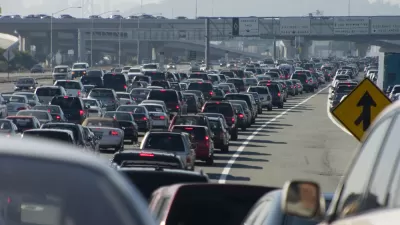A week before a Nov. 3 Maine transportation referendum on a *general fund bond issue to address roads and bridges, TRIP released a report showing that over a third of the state's bridges "are structurally deficient or functionally obsolete."
[Updated 11/2/15] "On Nov. 3, Mainers will vote on three statewide referendum questions," writes state Representative Andrew J. McLean (D-Gorham), chairman of the Transportation Committee, in an opinion for Kennebec Journal on Central Maine.com to support Question 3.
From Maine.gov: November 3, 2015 - Referendum Election:
Question 3: Bond Issue
Do you favor an $85,000,000 bond issue for construction, reconstruction and rehabilitation of highways and bridges and for facilities and equipment related to ports, harbors, marine transportation, freight and passenger railroads, aviation, transit and bicycle and pedestrian trails, to be used to match an estimated $121,500,000 in federal and other funds?
Eighty percent, or "$68 million of these funds will be used to construct and repair state highways, repair secondary roads in partnership with local communities and replace or rehabilitate bridges," writes McLean. "The remaining $17 million would be dedicated to a variety of other projects with the priority of identifying and targeting those that most improve public safety and support economic growth."
"The TRIP report, 'Preserving Maine’s Bridges: The Condition and Funding Needs of Maine’s Bridge System' (pdf), finds that 15 percent of Maine’s state and locally maintained bridges are structurally deficient, which means there is significant deterioration of the bridge supports or other major components," states the Washington, DC based national transportation organization's press release. The acronym previously stood for The Road Information Project.
"Lawmakers voted overwhelmingly in favor of issuing the $85 million in bonds for these transportation needs before sending the proposal to Maine voters for final approval, as required by the Maine Constitution," notes Rep. McLean.
There should be little question as to whether the funds are necessary. McLean compares Maine to New Hampshire, a state with comparable population (1.327 million) but half the number of roads and bridges.
However, after consider effort, New Hampshire increased its gas tax by 4.2-cents per gallon to 24 cents last year. Maine's 30-cent gas tax hasn't changed since 1993, according to an informative article from MPBN, Maine's NPR News Source.
Voters backed a $100 million bond measure two years ago.
Regrettably, McLean doesn't mention that bond measures are not a sustainable strategy to address transportation funding. User fees, such as gas taxes or tolls, are not mentioned. Interestingly, he took the same approach last year in an opinion piece posted here.
Hat tip to AASHTO Journal.
*The post was updated to reflect the referendum's approval of a general fund bond issue, rather than a property tax.
FULL STORY: Funding for safer roads, stronger economy goes to voters Nov. 3

Maui's Vacation Rental Debate Turns Ugly
Verbal attacks, misinformation campaigns and fistfights plague a high-stakes debate to convert thousands of vacation rentals into long-term housing.

Planetizen Federal Action Tracker
A weekly monitor of how Trump’s orders and actions are impacting planners and planning in America.

In Urban Planning, AI Prompting Could be the New Design Thinking
Creativity has long been key to great urban design. What if we see AI as our new creative partner?

King County Supportive Housing Program Offers Hope for Unhoused Residents
The county is taking a ‘Housing First’ approach that prioritizes getting people into housing, then offering wraparound supportive services.

Researchers Use AI to Get Clearer Picture of US Housing
Analysts are using artificial intelligence to supercharge their research by allowing them to comb through data faster. Though these AI tools can be error prone, they save time and housing researchers are optimistic about the future.

Making Shared Micromobility More Inclusive
Cities and shared mobility system operators can do more to include people with disabilities in planning and operations, per a new report.
Urban Design for Planners 1: Software Tools
This six-course series explores essential urban design concepts using open source software and equips planners with the tools they need to participate fully in the urban design process.
Planning for Universal Design
Learn the tools for implementing Universal Design in planning regulations.
planning NEXT
Appalachian Highlands Housing Partners
Mpact (founded as Rail~Volution)
City of Camden Redevelopment Agency
City of Astoria
City of Portland
City of Laramie



























